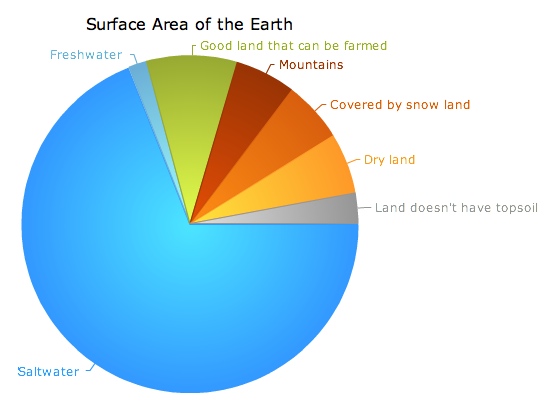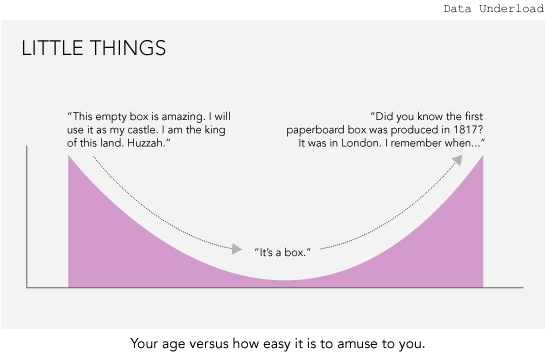Things I learned this week – #3
CC BY-NC-SA Jeezny
I know I said that these posts would be called ‘Sunday Scientia’ but that, erm, isn’t very snappy. Or descriptive. :-p
Top 3
- From the wow-as-a-History-teacher-this-rocks-my-world department, it turns out that the Egyptian pyramids weren’t built by slaves after all! 😮
- Matt Mullenweg (he of the WordPress-coding fame) turned 26 this week. He made some resolutions for the coming year (much as I did) and on the list was ‘learn more about Captology’. It turns out that Captology is ‘the study of computers as persuasive technologies’. Interesting!
- Nathan Yau from FlowingData has created a great infographic from UNdata called Graphical World Progress Report. It’s fascinating and obtainable as a print. All proceeds go towards the UNICEF relief effort in Haiti.
Tech.
- Need to send and receive anonymous questions? Try formspring.me (via @burntsugar)
- I’m sure that Graffiti markup is going to be extremely useful, but for me it just looks extremely cool…
- I was reminded of Jott for voice to text transcription on-the-go via a post on dy/dan
- Google offer some very competitive pricing for extra GMail/Picasa storage. I thought this could be used for off-site backup using gDisk (Mac OSX only), but it didn’t seem to be compatible with Snow Leopard…
- The wireless networks at my house have fairly boring names. I like these ones better (via @swissmiss)

- David Pogue reckons that the iPhone is for sheep, whereas Android is for geeks. Baa baa. (via Smarterware.org)
- Reed’s law on social networking sounds very grand and scientific, but is saying that they scale because they can have sub-groups very profound? (via @ewanmcintosh)
- There’s lots and lots of free ebooks out there – especially useful if you’ve got an Amazon Kindle – ebooksearchr caught my eye in particular (via @coolcatteacher)
- Mark Zuckerberg, founder of Facebook, reckons that privacy is ‘no longer a social norm’. I’d contend that he’s correct about a certain kind of privacy but it would take me a full blog post to explain…
- Aza Raskin wonders whether we need a Creative Commons for Privacy? (via @chrismessina)
- It turns out selling ebooks DRM-free doesn’t hurt sales. In fact, despite rampant piracy, it was found that sales actually went up!
- Tuper Tario Tros is a mashup of Tetris and Super Mario. Play Tetris (kind of) as usual, then play Super Mario on the landscape you’ve created!
- From the oh-my-goodness-this-is-unbelievable department, RCA Airnergy apparently charges gadgets using wifi signals. Which kind of makes me worry about what they’re doing to my body… (via @timlauer)
- You can now upload any type of file to Google Docs (with resumable uploads). Handy!
- Ever need to edit a PDF? Me too. Try this! (via @maggiev)
- I won’t be buying an e-reader, and especially not after reading 2010: the only year of the e-reader. They’re stop-gap devices.
- Need some Creative Commons-licensed media? Try looking here. (via @russeltarr)
- If you need some guidance on how to use Creative Commons-licensed media in presentations, you could do worse than checking this out. (via @downes)
- Alan Levine wondered what happens when a CC-licensed photo vanishes? (hint: it’s still CC-licensed)
- Are you still, as I was, wondering “why use Google Wave?” Try this FAQ. I especially like the definition of it as a multimedia wikichat.
- Need to schedule some tweets? Twuffer is a Twitter ‘buffer’. (via @cwebbtech)
- You can crop & remove ads/offensive content from YouTube videos using safeshare.tv (via @kiwicarol)
- Although I’m not sure why you’d want to do this, if you’ve been crying out for a way to use up to 24 cursors on one screen you can now with this Microsoft tool. (via @tobywilson)
- There’s a bewildering number of iPhone apps, which is why I was pleased to come across app.itize.us, a site dedicated to ‘the best produced and designed iPhone apps’ (via BoingBoing)
Productivity & Inspiration
- I was delighted to come across this ‘How I work’ series again from a few years back, including how Marissa Meyer at Google deals with the amount of information she has to process. (via dy/dan)
- If you’re not great at making decisions, Hunch might help. Or not. :-p
- Happiness, it would seem, spreads like a virus. Are you infectious?
- Almost everyone I know uses an online calendar, usually Google Calendar. But what about if you need something slightly different? This online calendar roundup mentioned Cozi.com which looks especially useful for families.
- Zen Habits looks like it’s turning into a list blog, but when Leo delivers posts like 20-plus amazing fitness blogs to inspire you, I don’t mind too much.
- Kathy Sierra (@KathySierra) recommended a book about the link between exercise and brain performance. That’s recommendation enough for me – I just bought it! If you don’t follow Kathy on Twitter already, do so now.
- Google have reorganized their Become a GMail Ninja help section to be more useful: (via @mortenoddvik)
Education & Academic
- Here’s some useful resources for iPod Touch in Education (via @johnjohnston)
- The new English GCSE could include study of Facebook and Twitter according to the Telegraph (via @JenM)
- Here are the Best Education blogs of 2009. Allegedly.
- The 2010 Horizon Report is out. Executive Summary here – open content and mobile technologies FTW!
- The Guardian has a useful article on Why playing in virtual worlds has a lot to teach children (via @Eingang)
- TeachMeetBETT 2010 happened on Friday. I wasn’t there, unfortunately. Still, it was previewed in the Guardian and you can catch it again here.
- 270,000 poorer pupils in UK are to get free laptops under the ‘Home Access’ scheme (via @csessums)
- Harold Jarche links to a useful Community maturity model on Flickr.
- The claim that students only have an attention span of 10 mins is dealt with by James Clay. As he says, if you can only gain students’ attention for ten minutes, you’re doing something wrong. Having said that, I have heard it said that students have the attention span of their age plus 2 minutes… (via @downes)
- Studies have shown that music education can build up your brain in a way that can have a positive effect for the rest of your life. So that Grade 4 piano aged 9 wasn’t a complete waste of my parents’ money… (via @elonahartjes)
Data, Design & Infographics
- You’ve probably noticed from this site that I like minimalism. Swissmiss links to some great ones.
- Macbooks cost different amounts around the world, which makes for an interesting infographic.
- I found this infographic showing what covers the surface of the earth. Have a look below – I was surprised that there’s as much land covered by snow as good farming land):

- This infographic showing ‘social networking via letters’ in the 19th century shows that having to cope with a glut of information is nothing new!
- I’ve been using the Sleep Cycle iPhone app for a week or so, which is why I found interesting this infographic showing what makes you feel good according to Circadian rhythms.
- Whilst the majority of the western world has increasingly top-heavy populations in terms of age, that’s not the case everywhere in the world. That makes for an informative infographic showing population of the world under the age of 15. (via @derekeb via @benleis)
- I’m aware of the basics of using typography online, but this takes it one step further. Great stuff! (via @brynn via @smashingmag)
- Nathan Yau of FlowingData has a ‘data underload’ series at the moment. I liked this one on what it takes to amuse us at different ages:

Misc.
- Metaphor can be a powerful way of looking at some complex issues. Take organizational theory and decentralization, for example. A ‘starfish’ and ‘spider’ metaphor seems pretty useful (via @hrheingold)
- 50 dangerous things you should let your children do [book]. Not so sure about ‘looking at the sun’ but probably agree about some of the others.
- Finding the right images for blog posts and design projects is all about searching using the right words. Try this Getty keyword guide and Stockvault.net for some free stock images.
- We had a lot of snow. For us. People routinely get a lot more (via @ransomtech):

- Some people, apparently, have felt the blues after watching Avatar. Boo hoo.
- If you’re using social media seriously, you might want to check out Social Media – a legal guide.
- Martin Weller asks Do you have to do social media to get social media? Yes. You do. 😉
- BoingBoing has an amazing photo of Martian dunes:

- The BBC has a list of 100 things we didn’t know last year. Breaking wind is a bookable offence in football?! (via swissmiss)
- Want to take photos with High Dynamic Range? Try this definitive guide to HDR photography (via @johnjohnston)
- Flickr Flow shows the colours of the year.
Quotations
It’s better to do something imperfectly than to do nothing perfectly. (via @igorkheifets)
The world is before you, and you need not take it or leave it as it was before you came in. – James Baldwin (via @heatherdenton)
Where the willingness is great, the difficulties cannot be great – Machiavelli (via @dahara)
A failure establishes only this, that our determination to succeed was not strong enough. – John Christian Bovee (via @dahara)
What you do speaks so loudly that I cannot hear what you say. – Ralph Waldo Emerson (via @IsabelLambert)
It is easier to prevent bad habits than to break them – Benjamin Franklin (via @lynnegordon)
Creativity is thinking up new things. Innovation is doing new things. – Theodore Levitt (via @TheArtMan)



Ref: Having said that, I have heard it said that students have the attention span of their age plus 2 minutes… (
This is just so not true, anyone who has worked in a classroom with children or has children will know that it is not the child it is the activity. For example my seven year old (nine minute attention span) can sit through 30 minutes of Micheal Portillo pontificating about trains, whilst me (42 min attention span) watches about three minutes and then I am bored and need to do something else.
When I was teaching I saw some students get so immersed in a 60 minute lecture they didn’t realise a hour had passed, and get bored with a 15 minute activity after five minutes. A lot depends on the individual and a lot depends on the activity.
Thanks for posting the link.
James
Perhaps I was too brief. The full advice I received on my teacher
training was that you should, as a rule, ‘speak to children for no
longer than their numerical age plus two minutes’.
I interpreted this as shutting up as much as possible and letting them
get on with their learning. It’s stood me in good stead! ;-)
That makes more sense.
Simply fantastic blogpost every week! This is a great idea Doug. It is THE blogpost I keep my eyes (both of them) open for. People who don’t read this should subscribe. Fits well into a busy teaching life. Thank you for taking the time to aggregate all the info you find with short comments and a bit of Northern wit. Bravo!
Thanks Dai, I’ll keep them coming then! :-D
Next door on delicious to the link to Reed’s Law was a refuting post: http://news.zdnet.com/2100-1035_22-141783.html Worth reading them together to make your own mind up
Thanks Ewan, I’ll check it out. :-)